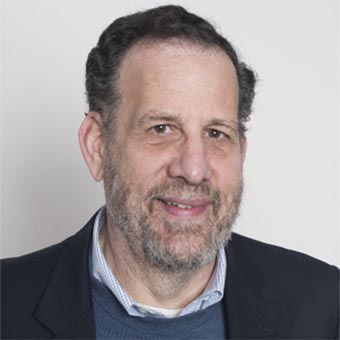Director's Letter
February 22, 2018
Dear Friends,
 Along with my colleagues Janet Krasner Aronson, Matthew Boxer, and Matthew Brookner, I am pleased to announce the release of two new Jewish community studies: The 2017 Greater Washington Jewish Community Demographic Study and The 2017 Greater Pittsburgh Jewish Community Study. Both studies reflect the application of cutting-edge methodology to understanding Jewish communal life.
Along with my colleagues Janet Krasner Aronson, Matthew Boxer, and Matthew Brookner, I am pleased to announce the release of two new Jewish community studies: The 2017 Greater Washington Jewish Community Demographic Study and The 2017 Greater Pittsburgh Jewish Community Study. Both studies reflect the application of cutting-edge methodology to understanding Jewish communal life.
The 2017 Greater Washington Jewish Community Demographic Study found that the Greater Washington Jewish population has increased substantially (37%) compared to the 2003 estimates. The community now numbers nearly 300,000 Jewish adults and children in over 155,000 households, with much of the growth occurring in Northern Virginia. The findings are consistent with census data pointing to the influx of highly educated individuals to the region. We are grateful to The Morningstar Foundation and to Susie and Michael Gelman, whose support allowed us to carry out the study.
Greater Pittsburgh’s Jewish community has also experienced population growth. Since its last community study in 2002, the Greater Pittsburgh Jewish community has grown by nearly 20% and now numbers nearly 50,000 Jewish adults and children in nearly 27,000 households. The 2017 Greater Pittsburgh Jewish Community Study also illustrates that the composition of the Jewish community has changed over the last 15 years. The largest shares of the population are adults ages 18-29 and 60-69, with younger adults and families more prevalent in the city, and older adults residing in greater numbers in the suburbs and outlying areas.
The population numbers are only part of what we found. Both reports document that the vast majority of Jews in these communities are involved in Jewish life in some way—culturally, organizationally, through ritual and synagogues. They also point to a variety of styles of engagement across different subgroups. As part of the release of each of the studies, my team and I spent several days in each community. We met Federation and other leaders to discuss the findings and assist them in developing strategies to deepen the opportunities for all segments of their communities to be involved in Jewish life.
As always, I welcome comments, questions, and feedback about our research.
B’shalom,
![]()
Leonard Saxe, PhD
Klutznick Professor of Contemporary Jewish Studies
Director, Cohen Center for Modern Jewish Studies and Steinhardt Social Research Institute at Brandeis University